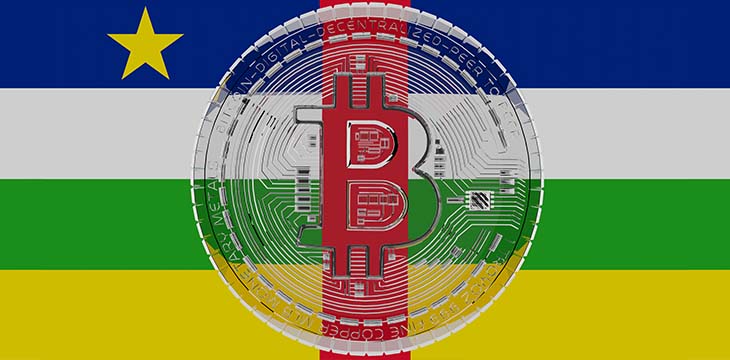|
Getting your Trinity Audio player ready...
|
The Central African Republic (CAR) has been grabbing headlines in recent weeks after passing a law that seeks to allow digital currency payments in the country. As CoinGeek reported, the move faces many hurdles, from the very low Internet penetration (11%) to the high poverty in the country (it’s in the top 10 poorest in the world). But as Bloomberg revealed, there’s one more hurdle—the country’s central bank says it was caught unaware by the government’s BTC plan.
The Bank of Central African States is the central bank in six states in Central Africa, including the CAR, Cameroon, Equatorial Guinea, Republic of Congo, Chad, and Gabon. It controls the Central African CFA Franc, the national currency in these countries.
A spokesperson for the bank told Bloomberg that it hadn’t been informed of the move by the CAR. This jeopardizes the already slim chances of success for such a move as the bank controls and regulates the country’s financial and monetary systems.
In El Salvador, which BTC fans have touted to be the ultimate endorsement of their archaic digital currency (or rather a digital asset since that’s what it’s become), adoption has been greatly overhyped by media outlets.
The U.S. National Bureau of Economic Research published a report in which it found that Salvadorans have rejected BTC, despite their authoritarian President Nayib Bukele pushing it on them.
In the survey that queried 1,800 households in the Central American country on their financial habits, researchers wrote that “usage of Bitcoin for everyday transactions is low and is concentrated among the banked, educated, young, and male population.”
In addition, the researchers debunked the numbers that Bukele had been throwing around as proof of adoption, the first of which was the number of people using the state-issued Chivo wallet. While those who had downloaded the wallet at first were sizeable, researchers found that they had only done it to access the $30 that came with each new download. Once they spent the $30 in BTC, they never used it again, with only 20% of the initial downloaders still utilizing the wallet. And even in this group, 90% claimed that they still used cash as much as they always had.
In the CAR, doubts are already being cast over the move to BTC, both from within and beyond. Former Prime Minister Anicet-Georges Dologuélé questioned the move stating, “It will be difficult to implement as CAR doesn’t have the capacity or the knowledge to enforce such a law. We lack connectivity, expertise, even power is a problem.”
Beyond the borders, the International Monetary Fund (IMF) has warned CAR over its BTC move. Abebe Aemro Selassie, the head of the IMF African Department, told one outlet that the country doesn’t have the requisite financial infrastructure to make such a leap, warning against looking at digital currencies as a silver bullet that solves all a country’s challenges.
“It is really important to not see such things as a panacea for the challenges that countries face,” he stated.
Currently, the CAR holds a $210 million loan from the IMF, which is about 10% of its gross domestic product.
Nevellan Moodley echoed some of the concerns that most people have had with the BTC move by the country, telling Bloomberg, “If they want to use it for the average citizen on the ground, with the low Internet penetration that’s probably not going to happen.”
The move by the CAR wasn’t entirely misguided, however. Currently, the country relies on the CFA Franc, a currency that’s pegged to the Euro. The biggest caveat is that the Bank for Central African States has to maintain at least 50% of foreign assets with the French Treasury, an arrangement that greatly hinders the growth of these six states. Criticism for this arrangement has been growing, with many terming it as a form of neo-colonial imperialism by a European country on African states.
Digital currencies could give these six countries an out. However, BTC certainly won’t be the digital currency the masses could turn to for day-to-day transactions. BTC’s very high fees and agonizingly slow transactions make it unsuitable for transactions. With its enterprise blockchain, which scales unbounded, and its low fees compared to other blockchains, only BSV can support mass digital currency transactions.
Watch: CoinGeek New York panel, BSV vs. Other Blockchains: Differences that Matter for Developers & Businesses

 03-02-2026
03-02-2026 




